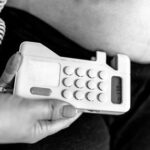Nutritional yeast, a popular ingredient in the health food world, is often praised for its nutritional benefits. But is nutritional yeast good for pregnancy? Let’s dive into the potential benefits and risks of consuming this powerhouse ingredient during pregnancy.
Nutritional yeast is a deactivated yeast that is commonly used as a seasoning or flavoring in cooking. It has a cheesy, nutty flavor and is often used as a topping for dishes like pasta, popcorn, and salads. In addition to being delicious, it is also packed with essential nutrients like protein, fiber, vitamins, and minerals.
During pregnancy, maintaining a balanced and nutritious diet is crucial for both the mother’s health and the healthy development of the baby. Adequate nutrition can help prevent birth defects, support overall fetal development, and reduce the risk of complications during pregnancy. This raises the question: can nutritional yeast be beneficial for pregnant women looking to meet their nutritional needs? Let’s explore the potential benefits and drawbacks of incorporating this superfood into a pregnancy diet.
Nutritional Benefits of Nutritional Yeast
Nutritional yeast, often referred to as “nooch,” is a popular ingredient in the world of health and wellness. It has gained attention for its savory, cheesy flavor and high nutritional content. Nutritional yeast is packed with essential vitamins and minerals, making it a versatile addition to a variety of dishes. It is commonly used as a topping for popcorn, pasta, and salads, and can also be incorporated into soups, stews, and sauces.
Rich in B Vitamins
One of the key nutritional benefits of nutritional yeast is its high B vitamin content. These include B1 (thiamine), B2 (riboflavin), B3 (niacin), B6, and B12. These B vitamins are essential for overall health and well-being, playing a crucial role in energy production, metabolism, and neurological function. During pregnancy, maintaining adequate levels of these vitamins is especially important for the mother’s health as well as the development of the fetus.
Complete Protein Source
In addition to being rich in B vitamins, nutritional yeast is also a complete protein source. This means that it contains all nine essential amino acids that the body cannot produce on its own. Adequate protein intake is vital during pregnancy to support the growth and development of the baby. Including nutritional yeast in a pregnant woman’s diet can help ensure that she meets her protein needs while enjoying delicious meals.
Boosts Immune Function
Furthermore, nutritional yeast is known for its immune-boosting properties. It contains beta-glucans, which have been shown to enhance immune function by supporting the activity of white blood cells. This can be beneficial for pregnant women who need extra support for their immune system during this crucial time. A healthy immune system is essential during pregnancy to protect both the mother and the developing baby from illness and infection.
Importance of Nutrition During Pregnancy
The importance of nutrition during pregnancy is crucial for the development and growth of the fetus. It’s essential for expecting mothers to consume a well-balanced diet that is rich in essential vitamins and nutrients to support their own health as well as the healthy development of their baby. One often overlooked but highly beneficial source of essential nutrients, including B vitamins, protein, and folic acid, is nutritional yeast.
Nutritional yeast has gained popularity in recent years as a nutritious addition to many diets due to its impressive nutrient profile and potential health benefits. It contains all nine essential amino acids necessary for fetal development and is an excellent source of B vitamins, particularly folic acid. Folic acid plays a vital role in preventing neural tube defects in unborn babies, making it especially important for pregnant women.
For pregnant women seeking a natural source of folic acid among other essential nutrients, nutritional yeast can be a valuable addition to their diet. When consumed as part of a well-balanced diet, nutritional yeast can contribute significantly to meeting the increased nutritional needs during pregnancy.
| Nutrient | Amount Per Serving |
|---|---|
| Folic Acid | 60 mcg per tablespoon |
| Vitamin B12 | 5 mcg per tablespoon |
| Protein | 4 grams per tablespoon |
Nutritional Yeast as a Source of Folic Acid
Nutritional yeast is a type of yeast that is grown on molasses and then deactivated through heat. It has a nutty, cheesy flavor and is often used as a condiment or seasoning in vegan cooking. Nutritional yeast is packed with essential vitamins and minerals, making it a popular choice for those looking to boost their overall health. One of the key nutrients found in nutritional yeast is folic acid, also known as folate.
Importance of Folic Acid During Pregnancy
Folic acid plays a crucial role in the early stages of pregnancy, as it helps in the development of the baby’s neural tube, which eventually becomes the brain and spinal cord. Adequate intake of folic acid during pregnancy can significantly reduce the risk of neural tube defects in infants. Pregnant women are often advised to increase their folic acid intake through supplements or dietary sources to support the healthy growth and development of their baby.
Nutritional Yeast as a Source of Folic Acid
Nutritional yeast is an excellent source of naturally occurring folic acid. Just two tablespoons of nutritional yeast can provide up to 100% of the recommended daily intake of this vital nutrient.
Incorporating nutritional yeast into the diet can help pregnant women meet their increased folic acid requirements during this critical time. However, it is important for pregnant women to consult with their healthcare provider before adding nutritional yeast to their diet, especially if they have any existing medical conditions or concerns about food safety during pregnancy.
Potential Risks of Nutritional Yeast During Pregnancy
During pregnancy, it’s important to be cautious about the foods you consume to ensure the health and well-being of both you and your baby. While nutritional yeast is generally considered safe for consumption, there are some potential risks that pregnant women should be aware of. Here are some factors to consider:
1. Nutritional Yeast Containing Added Vitamins: Some nutritional yeast products on the market contain added vitamins, such as synthetic folic acid. Consuming excessive amounts of synthetic folic acid during pregnancy can mask a B12 deficiency, which could have negative impacts on both maternal and fetal health.
2. Potential Allergic Reactions: Although rare, some individuals may have allergies to nutritional yeast. If you are allergic to other forms of yeast or have a sensitivity to MSG (monosodium glutamate), it is important to exercise caution when consuming nutritional yeast during pregnancy.
3. Sodium Content: Some brands of nutritional yeast may contain high levels of sodium, which can contribute to fluid retention and increase blood pressure. During pregnancy, it’s crucial to monitor sodium intake to reduce the risk of gestational hypertension or preeclampsia.
4. Inactive Yeast Risks: Nutritional yeast is made from a strain of Saccharomyces cerevisiae, which is an inactive form of yeast used as a food product. While this type of yeast is generally considered safe for consumption, pregnant women with compromised immune systems should avoid consuming inactive yeasts due to the potential risk of infection.
It’s important for pregnant women to consult with their healthcare provider before adding nutritional yeast to their diet in order to make an informed decision based on their individual health needs and concerns. As with any dietary change during pregnancy, moderation is key in all aspects – including incorporating nutritional yeast into your meals and snacks.
Recommended Dosage of Nutritional Yeast for Pregnant Women
During pregnancy, it is essential to ensure that you are getting the right nutrients for both your own health and the development of your baby. Nutritional yeast can be a great addition to a pregnant woman’s diet due to its high content of folic acid, protein, and B vitamins. However, it is important to be mindful of the recommended dosage to avoid any potential risks.
According to health experts, pregnant women can safely consume about 1-2 tablespoons of nutritional yeast per day. This dosage provides an adequate amount of folic acid, which is crucial for preventing neural tube defects in newborns. It also offers a good source of protein and B vitamins, which are beneficial during pregnancy.
It is important to note that while nutritional yeast can offer many benefits during pregnancy, consuming it in excessive amounts may not be advisable. As with any supplement, it is always best to consult with a healthcare provider before making significant changes to your diet during pregnancy. It is recommended that pregnant women speak with their physicians or nutritionists before incorporating nutritional yeast into their daily routine.
| Recommended Dosage | 1-2 Tablespoons Per Day |
|---|---|
| Folic Acid Content | Crucial for preventing neural tube defects |
| Consultation | Pregnant women should consult a healthcare provider before making significant dietary changes |
Nutritional Yeast Recipes for Pregnancy
During pregnancy, it is important to consume a well-balanced diet that provides essential nutrients for both the mother and the developing baby. Nutritional yeast is a great addition to a pregnant woman’s diet as it is packed with essential vitamins and minerals. Incorporating nutritional yeast into various recipes can help ensure that expecting mothers are getting the necessary nutrients needed for a healthy pregnancy.
One simple way to incorporate nutritional yeast into a pregnancy diet is by adding it to homemade soups and stews. The savory, cheesy flavor of nutritional yeast enhances the taste of soups while providing an extra dose of B vitamins, which are crucial for the development of the baby’s nervous system. Additionally, sprinkling nutritional yeast over salads or roasted vegetables can provide an added boost of protein, fiber, and important nutrients like zinc and selenium.
Another delicious way to enjoy nutritional yeast during pregnancy is by using it in homemade pasta sauces or casseroles. Nutritional yeast adds a cheesy flavor to these dishes without the need for dairy products, making it an ideal ingredient for pregnant women who may have dietary restrictions or sensitivities.
By including nutritional yeast in these recipes, expecting mothers can increase their intake of B vitamins such as riboflavin and niacin, which are important for energy metabolism and overall health during pregnancy. Overall, incorporating nutritional yeast into various recipes can be beneficial for pregnant women who want to ensure they are getting essential nutrients while enjoying delicious meals throughout their pregnancy journey.
In summary, nutritional yeast can be a valuable addition to a pregnant woman’s diet due to its rich content of essential vitamins and minerals. By incorporating this versatile ingredient into various recipes such as soups, salads, pasta dishes, and more, expecting mothers can benefit from its nutritional value while enjoying flavorful meals. However, it is important for pregnant women to consult with their healthcare provider before making any significant changes to their diet during pregnancy.
Conclusion
In conclusion, nutritional yeast can be a valuable addition to a pregnant woman’s diet due to its numerous nutritional benefits. It is an excellent source of various vitamins and minerals, including folic acid, which is crucial for the healthy development of the baby during pregnancy. Incorporating nutritional yeast into meals can help expectant mothers meet their increased nutrient requirements and support the overall well-being of both themselves and their growing baby.
While nutritional yeast is generally considered safe for consumption during pregnancy, it is important for pregnant women to be mindful of potential risks. Some varieties of nutritional yeast may contain added ingredients that could be harmful, so it is essential to choose a high-quality, unfortified product from a reputable source.
Additionally, pregnant women should consult with their healthcare provider before incorporating nutritional yeast into their diet to ensure that it is appropriate for their individual needs and any specific health conditions they may have.
In summary, when consumed in moderation and as part of a well-balanced diet, nutritional yeast can indeed be good for pregnancy. It offers a convenient way for expectant mothers to increase their intake of essential nutrients, including folic acid, which plays a crucial role in the healthy development of the baby. With proper care and consideration, nutritional yeast can be a beneficial dietary supplement for pregnant women seeking to optimize their nutrition during this important time.
Frequently Asked Questions
Is Nutritional Yeast Pregnancy Safe?
Nutritional yeast is generally considered safe during pregnancy, as it is a good source of vitamins and minerals, particularly B-vitamins like folate which is important for fetal development. However, pregnant women should always consult with their healthcare provider before adding any new food or supplement to their diet.
Is Eating Yeast Safe During Pregnancy?
Eating yeast, including nutritional yeast, is safe for most pregnant women. In fact, nutritional yeast can be a beneficial addition to a pregnant woman’s diet due to its high nutrient content. As always, it’s best to consult with a healthcare provider before making any significant changes to the diet during pregnancy.
Who Should Not Eat Nutritional Yeast?
While nutritional yeast can be a healthy addition to many people’s diets, there are some individuals who may want to avoid it. Those with yeast allergies or sensitivities should steer clear of nutritional yeast as it can trigger allergic reactions.
Additionally, those with Crohn’s disease or other gastrointestinal issues may need to avoid nutritional yeast due to its potential to worsen symptoms. It’s always best to check with a healthcare provider if unsure about whether or not nutritional yeast is suitable for your individual health needs.

Welcome to my fertility blog. This is a space where I will be sharing my experiences as I navigate through the world of fertility treatments, as well as provide information and resources about fertility and pregnancy.





